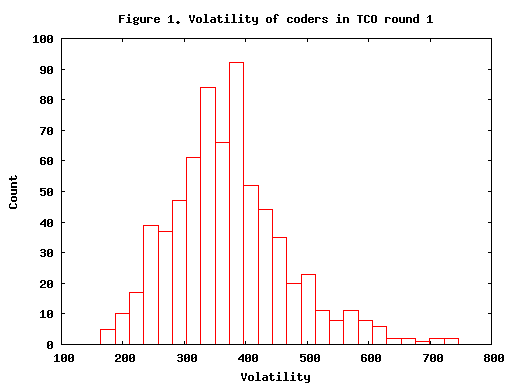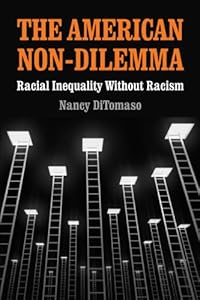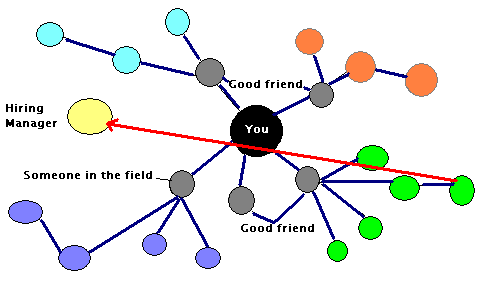Everything my personal experience told me suggested otherwise. Nobody I ever personally knew was racist. I had grown up in a rural predominantly white community, and the one or two fringe people flying their confederate flags weren't exactly what you'd call "difference makers" in town. If I had to bet based on my personal interaction with people I met at Berkeley, I'd guess well north of 99% believe in civil rights, and embraced the diversity that made our campus special. A Jim Crow UC Berkeley just didn't fit into my world view.
Last night, listening to the Tavis Smiley show on the way home, I heard this fascinating interview with Nancy DiTomaso as she discussed her book "The American Dilemma, racial inequality without racism". There, she noted that after interviewing thousands of individuals, she found that for 99% of people, 70% or more of their job opportunities had came because they had some extra help from a friend or former coworker. This type of networking has the effect of marginalizing social mobility, because if you come from a community where there are already no job opportunities to be shared, it makes it that much tougher to break into a market where you do not have a connection. This is a reality that fits well in my understanding of how the world works. Personal connections make getting a job 10 times easier for someone seeking employment.
But why does the world work that way? Businesses have a financial interest in hiring the best candidates for the job. They want a meritocracy. The reality is that the hiring process in the modern workplace is totally broken. How can you really know what a person claims to understand on their resume, amongst rampant exaggeration? How can you project how an employee will do based on a 30 minute call and a 45 minute in person interview? It is a joke. A bad hire is far worse than not hiring anyone at all, and companies must hedge against this risk however they can. So they turn to personal recommendations. Nothing really identifies a star in the workplace like working with them for months on end, staying up late at night, relying on their good ideas to make a team successful. If you can convince people you ALREADY know are good to come work with you, it is a huge win. At the cost of an unintended structural inequality, without racism.
 |
| Top Coder Ratings |
What could we do to improve on this system? We need to improve the hiring process to make it more merit based. Companies need tangible evidence about the people they invest in. There are a few areas where I could see wins both for companies and minorities in my industry, software engineering. First, there are competition based sites such as Top Coder and 99designs, where contracts are won on a merit based system via direct competition. Statistics on these sites give you a quantitative difference between the results of different individuals, which can be meaningful when hiring a full time employee. This is a meritocracy in its truest form. Next, if companies can increase the ratio of interns to full time employees, they provide low cost, low risk opportunities to identify potential candidates based on an extended period of working along side them. These kind of jobs provide invaluable inroads for people just starting their career, and improve the long term quality of employees that a company brings in, without having to rely on personal recommendations to hedge risk.



No comments:
Post a Comment